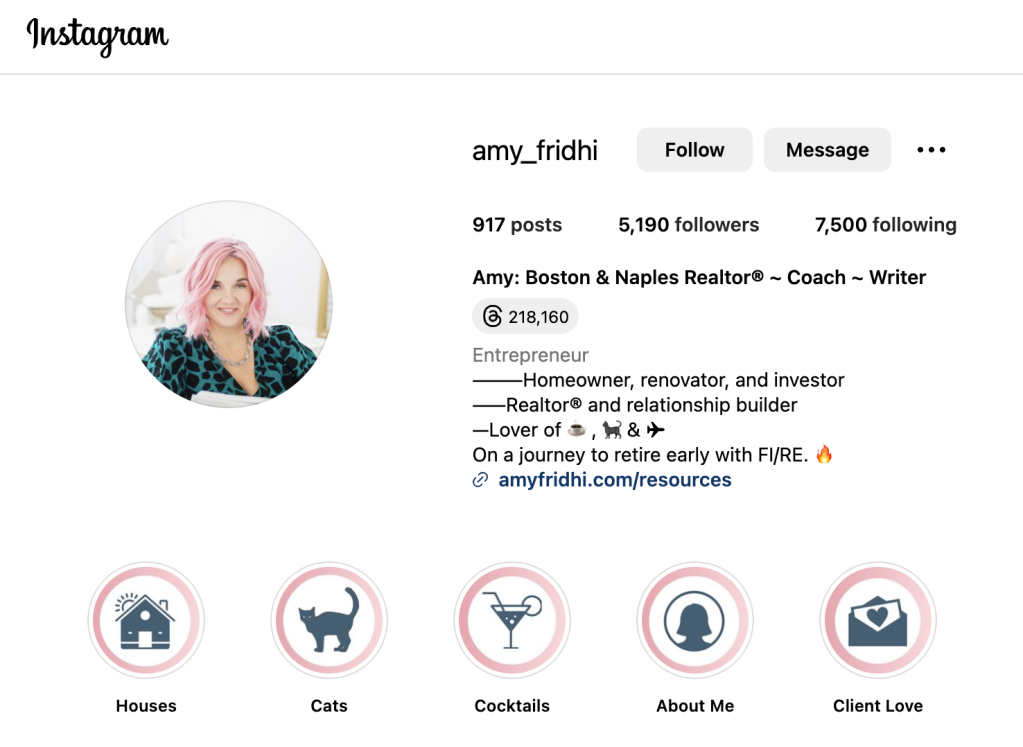Vetted by HousingWire | Our editors independently review the products we recommend. When you buy through our links, we may earn a commission.
The real estate market is ever-changing, and agents need to have the tools to succeed when these shifts happen. We’ve recently seen inventory shortages across the country. Agents are quickly realizing the importance of getting real estate seller leads using new and innovative methods.
Pre-internet, agents found seller leads through their personal sphere of influence, networking, and maybe the occasional direct mail postcard. These methods worked but were time-consuming and not always successful. Keep reading if you want some tips on how to generate seller leads in today’s real estate market.
How to get more real estate seller leads
From tactical approaches to broad marketing strategies, we’ll walk you through how to get more seller leads in 2024. You’re almost guaranteed a commission check when you have listings, whereas buyer deals can fall through for a variety of reasons, including competition from cash buyers, financing issues, and rising interest rates. Let us help you boost your revenue in the coming year.
Target FSBOs & FRBOs
Targeting For Sale By Owner (FSBO) and For Rent By Owner (FRBO) listings is a surefire strategy for finding seller leads. These are homeowners who may be open to listing their property with you as they’ve already expressed an interest in selling their property or letting someone else live in it.
Offering valuable market knowledge, a complimentary home valuation, or your expert staging and selling tips can demonstrate your value and open the door to discussion. You’ll need to convince them that you’re ideally positioned to provide a smooth transaction, expert negotiation skills, and a deep bench of knowledge about the market to get FSBOs and FRBOs to list their property with you.
To succeed, you’ll need a well-honed sales pitch explaining the benefits of working with a professional agent, including broader market exposure, polished marketing, and help with negotiations and legalities. Tailor your pitch to address the unique needs and challenges of homeowners trying to sell or rent a property on their own.
Next time you’re driving around your neighborhood and see a For Sale by Owner or For Rent by Owner sign, make note of the address and carve out time to meet with the homeowner. If you plan to target FSBOs and FRBOs, you’re going to need plenty of patience and a thick skin. And as with all successful prospecting strategies, your follow up is key.
Refine your website and personal brand
It’s the 21st century. If you’re a real estate agent without a web presence, you may want to consider another career. According to the National Association of Realtors National Association of Realtors® (NAR), 70% of broker/broker associates and 69% of sales agents have a website. If you want to compete, you need one too.
Buyers and sellers are using the internet more and more to look for properties, to research agents, and to learn about the market. Having a robust web presence is imperative for real estate agents aiming to generate seller leads in today’s digital world.
To find sellers, create custom landing pages on your website that offer free home valuations and describe the services and expertise you provide to home sellers. Then, drive traffic to your home valuation page using your social media channels. Tools like Market Leader let you pay to “own “your zip code at homevalues.com, generating homeowners leads from property owners who drop their email address, physical address, and property details into the site’s portal.
A professional website, as well as active profiles on real estate platforms and social media, increases the likelihood that potential sellers find you and your services. And much like we all read Yelp reviews before going to a restaurant, the same can be said for people looking for a real estate agent. Online testimonials and reviews significantly influence a seller’s choice of agent, making your online reputation a vital asset.
Through SEO (Search Engine Optimization) and online advertising, you can significantly increase your visibility to homeowners looking to sell, thereby generating more leads. An attractive online presence allows agents to showcase their listings and past sales — both important factors that potential sellers consider when choosing an agent.
By sharing relevant content and local market analysis, agents can position themselves as knowledgeable and reliable. In an era where the majority of homeowners start their selling journey with an online search, an agent’s web presence is not just a nice-to-have, it is essential.
For a website to be effective in helping you find motivated seller leads, it needs to be optimized, usable, and ideally connected to an IDX feed. Consider your website just as valuable, and probably more so, than your actual business card. With the internet, you have the potential to be in every home of every potential seller. Make sure that your website highlights the following:
- your experience and success
- your designations and certifications
- your current listings
- your past sales
- Your clients’ testimonials
- your social media links
- a way for potential clients to connect with you
This list isn’t comprehensive, but as an agent, you want the experience to be smooth, and stress-free, and the product to be exemplary. With seamless integration with the industry’s most powerful CRM, RealGeeks website templates are slick, attractive, user-friendly, and according to their website, “built for agents, by agents.”
Top tool: Real Geeks
If your brokerage doesn’t provide you with a website, or you aren’t happy with the one they do have, there are other options. Highlighted above, one of the most popular among agents is RealGeeks. So many techies build things for agents, and they have no idea what it’s actually like to be a real estate agent, never mind one looking for motivated seller leads. Real Geeks does things with the agent as their priority.
Related Articles
Become your area’s favorite local real estate agent
Community engagement has always been a crucial piece of the puzzle for real estate agents in their quest for seller leads. By
participating in community events, networking with locals, and offering value through local real estate workshops or seminars, agents can foster trust and recognition within the community.
The challenge is that you are only one person and can only be in so many places and attend so many local events. This is where technology can help you find seller leads. There are, of course, the local Facebook groups and apps like NextDoor where neighbors virtually gather to ask questions, share helpful information, and even market goods and services.
Savvy agents also leverage paid neighborhood community sites like Parkbench. These pay to play online communities ensure that there is only one real estate agent per community, theoretically increasing the chances of neighbors choosing you to work with.
As an agent, participating in any type of online community enhances your reputation and also places you top-of-mind when homeowners consider selling. Through community engagement, you can also gain a deeper understanding of the local real estate market and the concerns of potential sellers, which is invaluable for tailoring your services and marketing strategies.
A strong community presence allows agents to generate organic referrals and testimonials, which are often more compelling and cost-effective than other lead generation methods. In a competitive market, community engagement can significantly differentiate you from other agents, making you the go-to person for homeowners looking to sell, thereby generating a steady stream of seller leads.
Top tool: Parkbench
In a play on words of an old marketing tactic, Parkbench brings you to the local community without slapping your face and business name on a literal park bench. This genius company has created a network of hyper-local neighborhood websites. Each customized website is sponsored by just one real estate professional, so if you’re community-minded and want to engage with residents and neighbors, Parkbench might be right for you. The ultimate goal is to get business, but ideally, each Parkbench agent also genuinely cares about their community and enjoys sharing resources, answering questions, and just generally being helpful.
Related Articles
Drive website and social media traffic
You may want to just sell houses and hand over keys, but there is more to being a real estate agent. Believe it or not, you are a content marketer. Content marketing is a necessary part of a real estate agent’s strategy to attract, engage, and convert potential clients.
By creating and sharing valuable content such as blog posts, videos, and infographics that answer common questions and address typical concerns about buying or selling property, you will establish yourself as a knowledgeable and trustworthy expert.
Other than just sharing relevant information with clients, content marketing helps in improving online visibility and SEO, which in turn, drives more traffic to your website and generates more leads. Engaging content shared on social media or via email newsletters keeps you and your services top of mind with potential clients.
Ultimately, an effective content marketing strategy not only educates and engages your audience but also significantly contributes to building a strong brand and a loyal client base in the competitive real estate market.
For real estate agents venturing into content marketing, having the right set of tools can significantly streamline the process and enhance the effectiveness of your campaigns. Here are some of my favorites for use in content marketing in the real estate domain:
- Canva: A user-friendly graphic design tool that can be used to create visually appealing infographics, social media posts, and flyers, which are crucial for real estate marketing.
- Buffer: Social media management platform that allows scheduling posts in advance, tracking social media engagement, and analyzing the performance of content across various social media channels.
- YouTube: A platform for hosting and sharing video content, such as virtual tours, property showcases, and educational content.
- Animoto: Tools for creating professional-looking video content easily, which is important for showcasing properties and sharing testimonials.
- Grammarly: An online grammar checker and proofreading tool to ensure that the content is well-written and free of errors, projecting a professional image.
Utilizing a mix of these tools can significantly aid real estate agents in creating, distributing, and analyzing content, thereby enhancing your content marketing strategy to attract and engage potential clients.
Top tool: Canva
Without hesitation, Canva is my go-to for content creation. I am not an artist or a graphic designer, and Canva makes me look like Picasso. It is the most user-friendly graphics tool I have ever used, and I make everything I need using Canva — from seller guides to Instagram posts.
Improve your social media strategy
Social media marketing is a powerful tool for real estate agents, with both free and paid options. Platforms like Facebook and Instagram offer an opportunity for brand building and direct engagement with potential clients. By maintaining active profiles on platforms like Facebook, Instagram, and LinkedIn, you can showcase your listings, share success stories, and provide valuable market insights in a visually appealing and engaging manner.

According to recent statistics from NAR, “social media is more powerful than MLS for generating quality leads.” Social media’s interactive nature allows agents to foster relationships and engage in conversations with their audience, which is crucial for building trust and understanding the needs of potential sellers and buyers.
Paid advertising on social media can also be a cost-effective way to target specific demographics or geographic areas, helping you to reach a wider or more targeted audience with your messages. Services like LionDesk are great options for agents looking to use paid social media marketing to generate leads.
Related Articles
As an added benefit, social media provides a space for client testimonials and reviews, which are invaluable for building an agent’s reputation and encouraging referrals. In a competitive industry like real estate, leveraging social media marketing is essential for agents to stay relevant, connect with their community, and ultimately, generate more real estate seller leads.
I’ve been building my social media presence consistently for about three years now and am finally at the point where people recognize me in my neighborhood, at open houses, and at Realtor® events. I mean, having pink hair doesn’t hurt, but I think it’s a testament to the work I’ve put into my Instagram account.

Top tool: Coffee & Contracts
Although Coffee & Contracts has no built-in marketing tools or ad capability, it is still my go-to for creating consistent and attractive marketing content that can be used across platforms, including Instagram (posts, reels, and stories), Facebook, and even LinkedIn.
Once you create your content, you can use Meta Business Suite to boost posts on Instagram or Facebook, or create customized and targeted ads to reach your desired audience. The content and consistency that Coffee & Contracts provides really makes it easy to have a good-looking Instagram grid!
Leverage email marketing to your sphere
In the days before the internet, many agents would regularly send postcards and letters via USPS to their targeted neighborhoods. Now that we are in the email era, agents have begun to use similar strategies to land themselves in the inboxes of potential buyers and sellers.
Combining old-school tactics with modern analytics
Incorporating direct mail strategies within an email campaign can be a potent approach for real estate agents to connect with potential clients in a personalized and tangible manner. Just as direct (snail) mail can offer a personalized touch through tailored messages and local images, you can craft email campaigns with a similar level of personalization and local relevance.
When crafting client emails or newsletters, be sure to use the data you have available to customize what you are sending. This type of email resonates with your recipients on a deeper level than the typical generic mailers some agents send out. If a potential client feels like you are sending something specific to their interests and needs, rather than just blasting the same bland email to your entire sphere, they are more likely to take a look and hopefully give you a call!
Take advantage of custom graphics or a personal signature (traditional direct mail aesthetics) within the email’s design to evoke a sense of familiarity and personal connection. For Baby Boomers especially, this approach will resonate.
Combining the tactile engagement of direct mail with the digital reach and analytical capabilities of email marketing allows real estate agents to nurture relationships, provide value, and stay top-of-mind with potential sellers and buyers. Applying these strategies can significantly enhance the effectiveness of outreach efforts, fostering a more engaged audience and generating higher-quality leads in the competitive real estate market.
Related Articles
Audience segmentation
One of the advantages that email marketing has over traditional email marketing is the ability to really segment your mailing lists. With old-school snail mail, you could pretty much just select recipients based on zip code or gated community (shout out to Florida agents!).
CRM tools & audience segmentation
With email marketing, there are many tools that can target neighborhoods and drill down to include lists of absentee owners or people with massive equity who may be ready to sell. Working with segmented lists, real estate agents can target specific demographics or neighborhoods with tailored email content, mirroring the targeted approach of a direct mail campaign.
There are numerous tools available to real estate agents hoping to find new seller leads through direct email marketing. These include CRMs with email marketing features like Market Leader, Zurple, KVCore, and Chime. They all have similar features and what it comes down to is personal preference.
The feedback I typically hear from agents when choosing one specific platform over another is that they prefer its user interface. Since this is a matter of preference, I encourage you to take advantage of some free trials and webinars to get a sense of the specific CRM tool before handing over your credit card.
Top tool: Chime
Among all the CRMs with integrated email marketing and the email marketing only services out there, one of our favorites is Chime. It is very tech-forward and generates a bevy of analytics to improve your email open rates. For example, Chime continuously analyzes when your email gets opened to help you schedule and send them for the best results. It also easily customizes email content based on the neighborhood you are targeting.
Use virtual networking to expand your reach
You’ve heard of networking groups, networking events, and networking clubs. What about virtual networking? Virtual tours? Believe it or not, virtual options have become a pivotal part of the real estate industry, especially since online interactions often precede face-to-face meetings. Real estate agents looking to build relationships and find seller leads can leverage various platforms and resources to enhance their virtual networking efforts.
LinkedIn, for example, is a powerful platform for virtual networking where agents can connect with potential sellers, join real estate-focused groups, and share insightful content to demonstrate their expertise. Additionally, platforms like Zillow and Realtor.com offer forums and networking opportunities for agents to engage with property owners and other real estate professionals.
Moreover, participating in webinars and virtual real estate events hosted on platforms like Eventbrite or Meetup can also be an excellent way to learn, network, and generate leads.
Participating in online forums and communities like BiggerPockets or the National Association of Realtors (NAR) online forums can provide valuable networking opportunities and insights into the real estate market.
Through a strategic blend of these virtual networking tools and platforms, real estate agents can significantly expand their network, foster meaningful relationships, and effectively generate seller leads in a digital-centric market.
Conduct virtual open houses
Leveraging virtual open houses and tours through platforms like Zoom or Matterport can significantly enhance an agent’s ability to generate seller leads. You’ll impress potential home sellers with your polished property marketing. These virtual events allow agents to showcase properties to a wider audience while engaging with potential sellers in a dynamic, interactive environment. Virtual open houses that you livestream or broadcast after the fact on social media, for example, will demonstrate your presentation and marketing acumen to other potential sellers, and help them to get to know you better.
Top tool: Matterport
I personally use Matterport virtual tours on all my listings. I think it adds tremendous value to the property listing, demonstrates your tech savvy and marketing expertise to your seller client, and attracts more buyers. Here is a recent listing of mine where I included a Matterport virtual tour for potential buyers to preview the property.
Use predictive analytics to get more leads
Predictive analytics have emerged as a revolutionary tool for generating real estate seller leads. They quickly and easily allow you to make data-driven decisions in identifying potential sellers. By analyzing various data points, including market trends, historical sales data, consumer behavior, and more, predictive analytics can forecast which properties are more likely to be listed for sale in the near future.
This analytical approach allows real estate agents to focus their marketing efforts on homeowners who are more likely to sell, thereby optimizing their lead generation process. Let’s be honest, spending money on lead generation can get expensive. If there is a way to ensure more bang for your buck, I am all for it.
By embracing predictive analytics, real estate agents are not only able to enhance their lead generation strategies but also stay ahead in the competitive real estate market by efficiently allocating their resources and engaging potential sellers with a high degree of precision and personalization.
Tools like Offrs, Catalyze AI, and SmartZip offer a blend of technology and data analysis that significantly benefit real estate agents in the quest for seller leads. Offrs, for instance, provides a predictive analytics platform that identifies properties likely to sell in the upcoming year, allowing agents to focus their efforts on the most promising leads. On the other hand, Catalyze AI offers insights into property leads that are likely to sell within a 12-month timeframe, aiding in long-term lead nurturing strategies. SmartZip uses predictive analytics to pinpoint homes likely to be listed for sale in a specific neighborhood, which is crucial for geo-farming and localized marketing efforts.
These tools, with their data-driven insights, not only save time but also provide a competitive edge by enabling real estate agents to engage potential sellers proactively. By leveraging the predictive capabilities of any of these tools, you can significantly enhance your lead generation, tailor your marketing strategies, and ultimately, increase your chances of closing more deals in a competitive real estate market.
Top tool: Catalyze AI
Our top choice, Catalyze AI, has the ability to accurately predict which four out of 10 property leads are likely to sell within a 12-month timeframe. This information offers a substantial advantage to real estate agents in prioritizing and nurturing leads effectively. This maximizes your return on investment in lead generation and marketing spend.
Related Articles
Successfully farm geographic areas
Geo-farming is a strategic approach in real estate marketing that involves focusing marketing efforts within a specific geographic area to generate real estate seller leads. This method allows real estate agents to establish a strong presence and build relationships within a particular community. By consistently marketing to this defined area — through direct mail, local advertising, social media targeting, and community involvement — agents become the go-to real estate professional for residents looking to sell their homes.
An additional benefit of geo-farming is that it enables agents to become intimately familiar with the local real estate market, including pricing trends and buyer preferences, which is invaluable when advising potential sellers. Over time, geo-farming can help agents to establish a reputation as the local market expert, leading to an influx of seller leads through referrals and repeat business.
Pro Tip: By combining a personal touch with localized marketing strategies, geo-farming can significantly enhance a real estate agent’s ability to generate seller leads and thrive within a competitive market.
Tracking and analyzing the effectiveness of digital geo-farming strategies is crucial for real estate agents to optimize their lead generation efforts. Applying analytical tools like Google Analytics and specialized real estate CRM systems, agents can monitor the performance of their geo-farming campaigns in real time. For instance, you could track the number of inquiries or leads you have generated from a targeted Facebook ad campaign within a specific zip code.
Tracking the source of online inquiries can help determine the effectiveness of different digital channels in generating seller leads within the targeted geographic area. By thoroughly analyzing this data, you can refine your geo-farming strategies to better align with the needs and behaviors of homeowners in your targeted area, ultimately improving your chances of generating quality seller leads.
Top tool: CINC
Among the various real estate lead generation companies that use geo-farming, there are a range of options, price points, and interfaces. Based on these factors, as well as feedback I’ve heard from agents, CINC is the front-runner. Recent data shows an 18.4% conversion rate (visitor to lead) for seller leads from CINC.
The full picture: Real estate seller leads
Our industry is constantly evolving, and staying at the top of your game requires a blend of traditional techniques and innovative strategies. Using any or all of the tools in this article will not only broaden the spectrum of seller leads that you generate but will also foster a sense of community and trust between you and potential sellers. By embracing digital tools, engaging with local communities, and offering value upfront, real estate professionals can build a sustainable pipeline of seller leads.
The best approach to real estate marketing is one that nurtures relationships while leveraging the power of technology. As the market continues to shift, being adaptable and open to innovative strategies will be the hallmark of successful real estate professionals. The journey towards continued and successful seller lead generation begins with a step into the modern, tech-driven, and community-centered world of real estate marketing.














